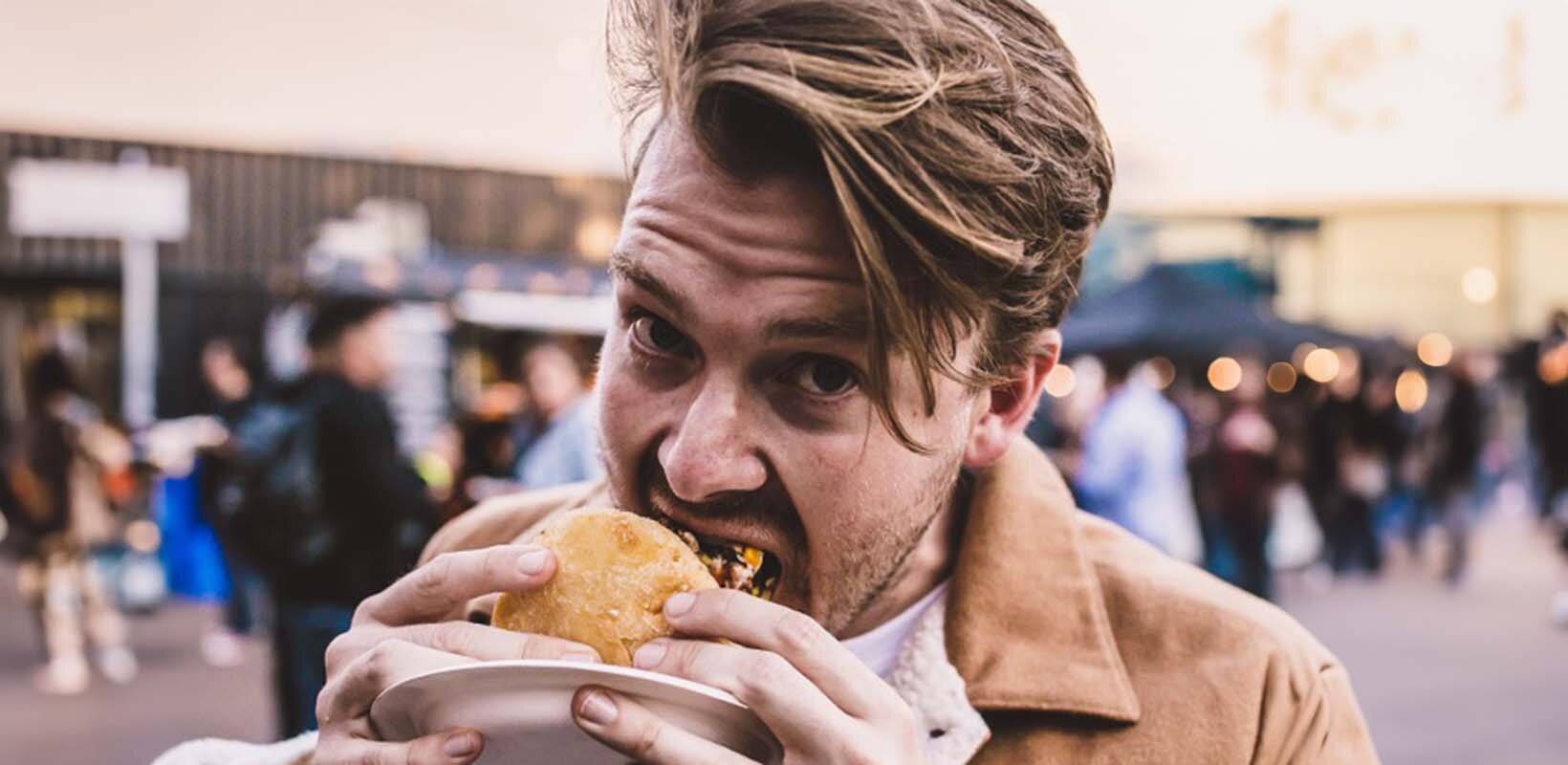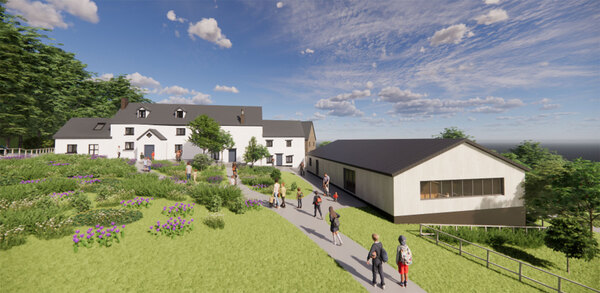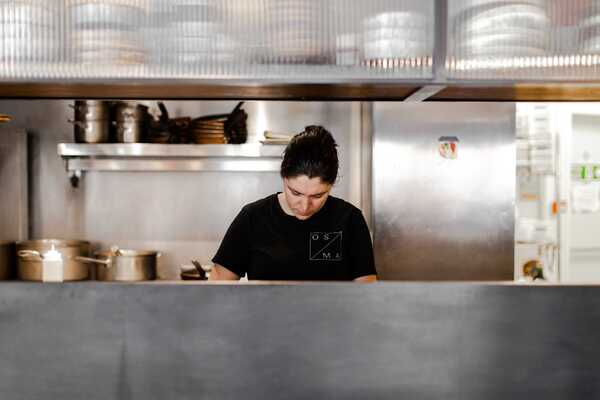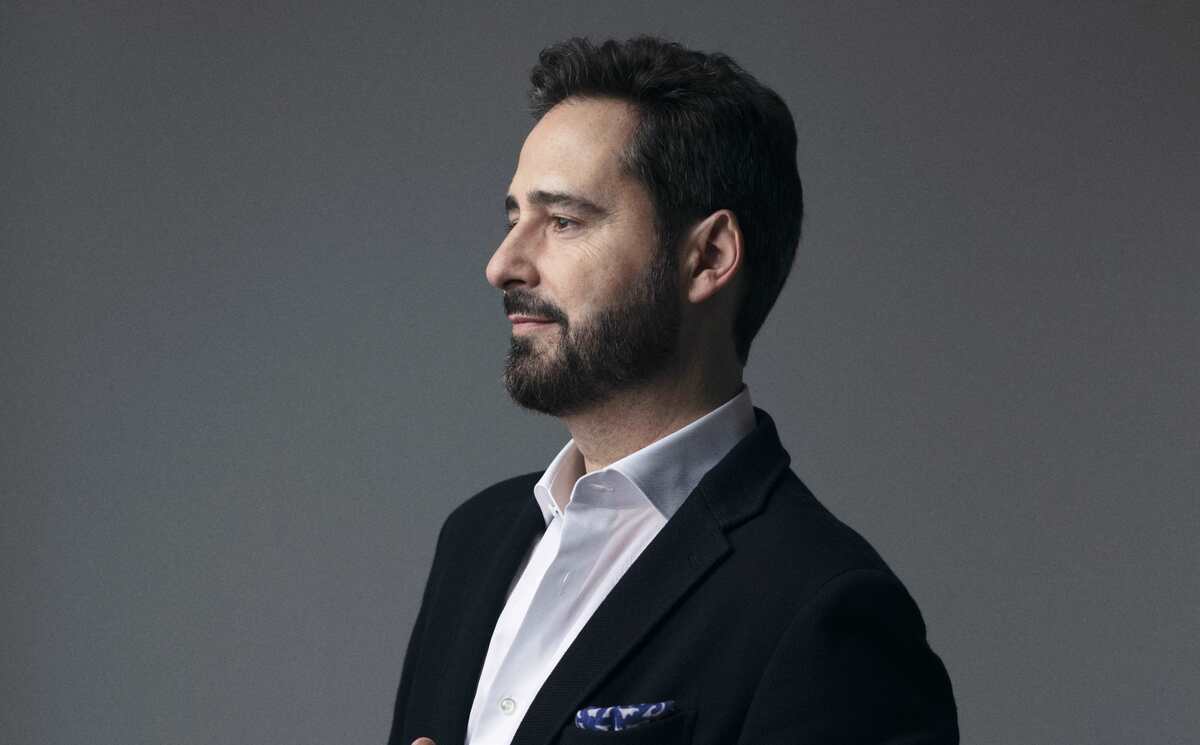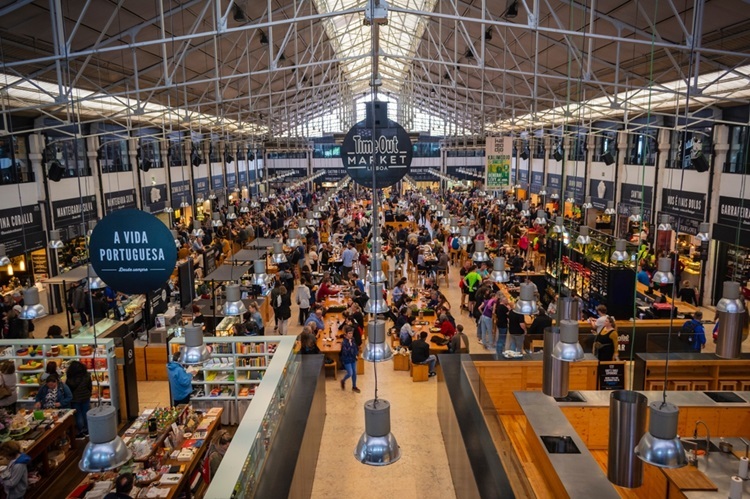James Brooks of Kerb on how fledgling business can join the inKERBator
The head of venue operations and lettings at London food market Kerb is ramping up the amount of fledgling traders completing its induction programme. He talks to Maria Mellor
So what’s new with Kerb and Seven Dials Market?
In January we had four new traders, which is the biggest change we’ve had since we launched. The market is getting back to how it was intended. When we opened in 2019, we envisioned it as a place where we would have constant turnover to support everyone through our ecosystem, and to give as many businesses a chance to thrive as possible.
What actually happened is, six months after we opened, we hit Covid. Businesses had to keep their head above water, so we bedded down together as a team – Seven Dials Market, Kerb and the 20-plus traders we supported.
Some traders have been here for three or four years, but we always intended for it to be 12- to 24-month contracts. Now Covid is in the past and Seven Dials Market is hitting amazing sales figures and has great footfall. We’re back with a vengeance!
How did you start supporting growing businesses?
About 12 years ago we did business workshops that were attended by brands such as Club Mexicana and Curry On Naanstop. They had just started a business or had a great food idea, and we’d bring in guest speakers for an immersive day on how to start trading. Following that, some would join Kerb’s incubator programme, the inKERBator.
It’s run by our not-for-profit social enterprise, Kerb+. A proportion of all profits from Seven Dials Market are donated directly to Kerb+, allowing the cycle to continue.
What happens on the programme?
When people start, they’re not always on the same path – sometimes it’s someone’s first ever food business, and sometimes it’s people that have been operating for some time but need finessing and want to do that with Kerb.
It starts with three weeks in the classroom. We help businesses with finance, their set-up, accounting, staffing, menu development, marketing and much more. Then they hit the markets. The first day is getting used to setting up and how the public reacts to their product. We taste the food, give feedback and continuous coaching through the programme.
What happens when they graduate?
They become full Kerb members and they can then trade at our high-volume markets like the Gherkin, plus they have the opportunity to trade at Kerb’s events. They can apply for Kerb venues, like Seven Dials Market or the National Theatre. We work with them daily to handle the higher volume and higher turnover of a seven-day-a-week operation.
How many incubator programmes do you run a year?
Right now the inKERBator is the strongest it’s ever been. We work with eight businesses every quarter, running four incubators a year, so that’s nearly 32 businesses a year coming through the programme. At the end of January we launched our first all-women inKERBator at Cowcross Yards in east London.
How do you find people for the programme?
It’s a combination of applications through our website, people we’ve scouted, our amazing food team and senior market manager Claudia Bovey, who is in charge of talent on inKERBator.
So how many of your traders at Seven Dials Market came through the incubator programme?
Out of the 20 members at the market, 50% come from the inKERBator programme. Of the four new traders in January, two are incubators – Lucky’s Hot Chicken and Los Gordos. Mother Flipper and Kolkati have been trading with Kerb at markets and events for many years.



